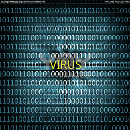Customer Feedback:
 Top Tips For Avoiding Malware
Top Tips For Avoiding Malware 
Whether we like it or not there are many reprehensible individuals who have nothing better to do with their time than to create and distribute malicious software (malware) with the potential to steal from you, destroy your personal data and generally wreak havoc with your lives and systems. The incentives for this dark corner of the world wide web can range from monetary to simply that they want to cause mayhem and take pleasure in the fact they are causing misery to whoever is unlucky enough to be on the receiving end of this malware. We want everyone to enjoy computing so we are going to list our top tips to avoid your system becoming infected.
This may sound obvious but it is the first step in avoiding malware. Don't feel that you have to spend your hard earned money on paid protection against infection. Their are many free Antivirus programs that are quite simply fantastic. AVG and Avast being our personal favourites.
(Click HERE to visit our Free Downloads section with several of the best free antivirus programs available)
Only Open Attachments Or Follow Links You Are 100% Sure Are Legitimate:
The distributors of these virtual plagues are constantly finding new ways to trick you into clicking on a link or opening an attachment. Even if the link or attachment is part of an email that seems to be from a friend, still treat it with caution and if it looks out of place and the text is fairly odd then the chances are said friend has had his or her Email account hacked at some stage and the person responsible stole all his contacts information (including yours) and will continue to use these contacts and the users name long after the person realises their account has been breached and they are able to change the password.
Avoid Downloading Programs From Anywhere Other Than Reputable Sources:A program may say it's a fun game whilst actually it is just creating a back-door into your system and could be stealing your data or damaging your system as you play the game. Such a program is called a Trojan horse for obvious reasons. So be careful what you download and where you download it from as all may not be as it seems. Check for reviews of the software.
When Installing Software Always Choose The "Advanced" Or "Custom Installation":
Most programs that are downloaded these days have a host of other programs or toolbars or other things that you really don't need or want and if you select “express” installation that it advises is “recommended” you are giving it the OK to install this junk onto your system along with the one thing you actually wanted. It will always say that the custom install is for advanced users only but don't be put off. Once you have chosen this there will be tick boxes you can deselect to avoid installing the junk. Whilst this junk can sometimes be harmless, other times it is not and either way it's best to avoid.
Don't Believe Pop-Ups:
I'm sure at one stage or another you will all have come across pop-ups trying to convince you for one reason or another they are legitimate and that you need to install whatever they are peddling. A common one is “We have detected you have 20,000 errors on your PC. Click here to run a free scan now. They may even tell you they are Microsoft certified or they may even try to trick you into thinking they are a genuine Windows pop-up. Ignore them and run a scan with your antivirus immediately.
Be Vigilant!:
The single biggest thing that can help avoid infection, is you, the user. If you can follow the above steps and not be enticed to click on links, pop-ups and other things telling you that you simply must have whatever it is they are advertising then this will go a long way to your system staying infection free. Safe computing everyone.
By Jamie Mulvey